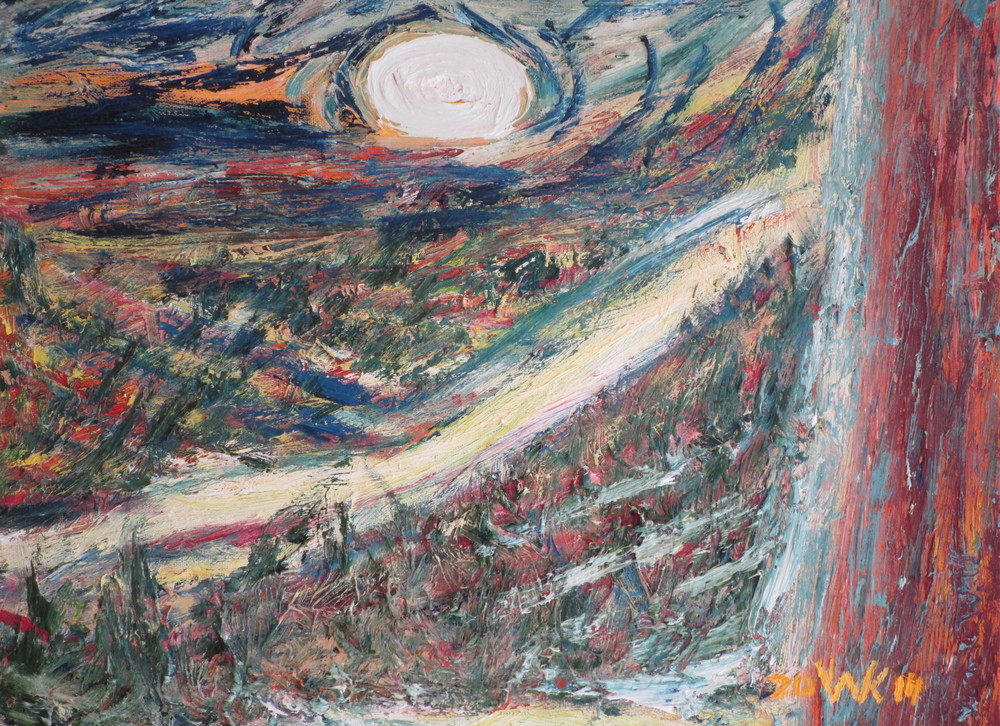
“Hiking the Hermit Trail, Grand Canyon National Park”
“Given enough time, nothing is more changeable than rock.”–Enos Mills
Under a different name that was finally mine, I fled the terror of defeat
and journeyed to where my father the king lived.
He would not have recognized me without his name.
His kingdom of sunshine and sin was bright and beautiful.
Relief fell on me like a sphinx mistaken for a guard.
I never wanted to leave, although small pains hit out at me everywhere—
a baby’s cry in the grocery store was a grenade.
I never could orient to where the sun would rise in his city of lost angels
and ever-blooming flowers in the desert. But at least I began again there
to have faith that it would. I never wanted to leave, but who can pass up
the chance to leave the leaver and begin again, again?
Couldn’t find my way out of my own neighborhood with two GPS toys running.
That’s flight. The system-crashing wing-bashing pull of it. Exhaustion.
So I took a nap and left at 3 a.m. instead of midnight, after locking myself out
a few times and finally stalking around the empty-cage apartment like a wild animal
before a storm, too tired and wired to decide if I wanted to let sleep take me alive.
Last time I drove it, the country was not yet mine,
but the Turner notches of blasted highway rockwalls
were a carwash for the soul, stripping away scabs of past, airing the wounds.
This time I’m blowing the notches kisses. What I tumbled through roughly
on the way out West feels now so gentle, smiling rockfaces waving me on
along the openest damn road I’ve ever seen. Black-eyed Susans rise up
like dancing snakes, and I’ve left or tried to leave so many people, places, and things
without ever achieving this escape velocity that shakes my muscles free from fear.
Everyone says the Grand Canyon is a wonder of the world, but no one tells you
how much it looks like an ocean. I wanted to go swimming
in those slow-crushed rock-waves—but not to dive.
I wanted to talk with the shining, black crow who followed me
from east to west coast, and then returned with me—
who perched in the palm tree outside my window as I rested on the push coast,
and then camped with me again on Desert View.
I wanted to make a fire, but the twigs and branches were damp still from the sobbing.
So I lit a paper bag, and it burned
first like a glittering wreath, like a writhing snake, and like glistening fish scales—
then like bugs running down a log, like cells dancing in a dish—
and finally, like embers, like a still-warm body
tossing its last embraces overboard into a freezing sea.
Fireflies! stars! oh, people, families and their lights and music.
The wind whipped through rock waves and the Colorado River below.
In the morning, I walked and read about the ocean, how Vishnu basement rocks
denote the layer after which nothing can cut the ground anymore.
Rock bottom isn’t really rock bottom, isn’t the worst,
because you can’t go any lower. At last, you can only change—
and rock does, evolving new colors, types, depths, shapes, and patterns.
It’s not a barren bowl, you know.
Trees, flowers, and animals pulse through the Canyon
like old rivers, like new blood, and like moving brushstrokes.
Something harsh carved out something beautiful here.
Ages of shifting, weight, jolting, and gradual wearing-down
made something wonderful—a wonder of the world.
In some places, the stacked cliff-faces look like pyramids—
but no slaves built here. The rock ocean flows from itself.
A museum placard warns, “No rock is safe”—even pure water
traces the verses and faces of its paths over time, grain by softened grain.
Plant roots befriend the cliff-faces for their friction and little but enough food.
Freezing rain stays the night, and cold rock knees fall away and apart.
Softer rocks wash away faster; the stronger stuff stays, stoney-faced,
until its overhang collapses. Being strong doesn’t work out so well, except
it’s still alright, the collapse is beautiful, and anyway even the wonders of the world
are always changing—even rock, especially rock. The only constant is its absurdity:
the river in the desert, the rocks uplifted a mile high by some unremembered crash
of plates and godly fists, the carving of an ocean out of rock
changed not damaged by blow after ongoing blow.
It’s hard, it’s impossible, it’s the easiest thing in the world,
for rocks to keep changing. So much easier than refusing to give.
So much easier to pick up and live.